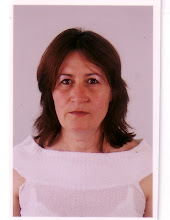
On 10 September 2008 at 10:28 am, the world’s largest particle accelerator – the Large Hadron Collider – was switched on. But why? In the first of two articles, Rolf Landua from CERN and Marlene Rau from EMBL investigate the big unresolved questions of particle physics and what the LHC can tell us about the early Universe, starting 10-12 seconds after the Big Bang.
When the Universe was formed 13 700 million years ago in the Big Bang, an immense concentration of energy was transformed into matter within less than a billionth of a second. The temperatures, densities and energies involved were extremely high. According to Einstein’s law E=mc2, to create a matter particle of a certain mass (m), you need a corresponding amount of energy (E), with the speed of light (c) defining the exchange rate of the transformation. So the high energies shortly after the Big Bang could have created particles of very large mass. Physicists have proposed these hypothetical heavy particles to explain open questions about the creation and composition of our Universe.
To investigate these theories, scientists have built the Large Hadron Collider (LHC). If a type of particle can be created in the LHC, the world’s largest particle accelerator, then it is assumed to have existed shortly after the Big Bang. The LHC will collide particles using the highest kinetic energies that are currently technically possible (these energies correspond to those that are calculated to have existed 10-12 seconds after the Big Bang), crashing the particles into each other with close to the speed of light. This should result in new particles of higher mass than any previous experiments have achieved, allowing the physicists to test their ideas. Despite suggestions by the media, however, the energy of collisions in the LHC will be about 1075 times lower than in the Big Bang, so fears that a ‘Small Bang’ could be recreated are unfounded.


MORE INFORMATIONS:
http://www.scienceinschool.org/2008/issue10/lhcwhy
